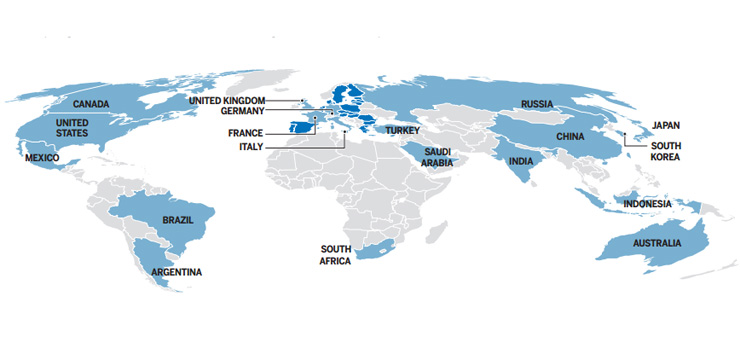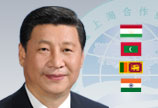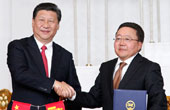Lifting economic growth to be in primary focus at G20 summit
BRISBANE, Australia - The target to achieve a stronger and sustainable economic growth will top this year's G20 agenda as leaders of 20 major world economies converge here for their annual forum.
Six years on from the global financial crisis, global economic recovery remains weak and uneven with GDP still below its pre- crisis peak in many rich countries.
The International Monetary Fund (IMF) in October lowered its expectations for global growth to 3.3 this year and 3.8 percent next year, a scaling back from its July forecast of 3.4 percent for 2014 and 4 percent for 2015.
In a move to address the flagging economy, G20 finance ministers and central bank governors agreed in February to raise their collective GDP by more than 2 percent above current projections by 2018 -- a boost of over $2 trillion in real terms and with the promise of millions of additional jobs if it occurs.
There are high expectations that Australia's G20 presidency would help reenergize the forum as its reputation has been slipping since the high point in the aftermath of the global financial crisis, analysts said.
As the chair in 2014, Australia aims to strengthen the G20 by pursuing a more focused agenda and achieving tangible outcomes.
It seeks to adopt a comprehensive strategy to follow through on the leaders' promises with the centerpiece to be the delivery of country-specific growth strategy containing a mix of macroeconomic and structural reforms.
"We have set an ambitious target of the 2 percent and we will strive damn hard to achieve that target and there is a positive plan that comes out of that," Joe Hockey, Treasurer of Australia, said in his opening remarks at the G20 finance ministers meeting which was held prior to the leaders' summit on Saturday.
Encouraging private sector investment in infrastructure, and cracking down on multinational companies which avoid tax were also the top issues on the G20 agenda, added Hockey.
The G20 economies constitute around 85 percent of global gross domestic product, 80 percent of world trade and two-thirds of the world's population.
An IMF/OECD assessment released at the G20 finance ministers meeting on Sept. 20-21 found that world growth would increase by an additional 1.8 percent over five years if countries were to implement almost 1,000 policy measures submitted to date.
A new Global Infrastructure Initiative to increase quality investment, particularly in infrastructure, was also backed by G20 nations to help shift government-led growth towards private-sector- led one, a key G20 goal.
Progress has been made on reforms to the global financial system, particularly on how banks apply capital rules and ways to close tax loopholes that are used by many multinational companies.
However, a renewed effort by leaders to promote multilateral trade liberalization and a real attempt to modernize international taxation should also be achieved by G20, economists said.
The leaders will continue to pressure the United States on ratifying IMF reform package agreed in 2010 by year-end to ensure countries that are reshaping the global economy have a greater voice, a key to promoting democracy in global economic governance.
The G20 members are Argentina, Australia, Brazil, Britain, Canada, China, France, Germany, India, Indonesia, Italy, Japan, Mexico, Russia, Saudi Arabia, South Africa, South Korea, Turkey, the United States and the European Union (EU).
A communique that outlines G20 policy commitment and plans to strengthen the global economy is expected to be adopted at the end of the meeting.
"To be considered a success, the Brisbane Summit must produce tangible outcomes that demonstrate the G20 members' willingness to act in concert to address pressing global issues," said Mike Callaghan from The Lowy Institute for International Policy, an independent policy think tank in Australia.
Related Stories
Xi attends meeting of BRICS leaders on sidelines of G20 summit 2014-11-15 08:55
Will Obama take a step forward at G20? 2014-11-15 08:48
Locals flee Brisbane before G20 summit 2014-11-15 08:21
Xi starts busy schedule with G20 2014-11-15 08:18
Background



